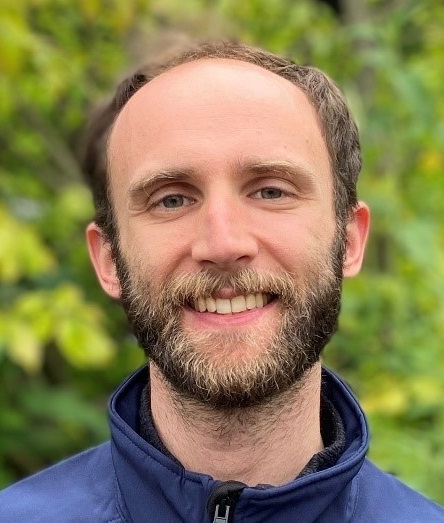
Célian Colon is a research scholar in the Exploratory Modeling of Human-natural Systems Research Group of the IIASA Advancing Systems Analysis Program and a Peter E. De Jànosi Postdoctoral Fellowship holder at IIASA. He recently sat down with 2022 Science Communication Fellow, Jakob Angeli, to talk about resilience, his career path, and why throwing money at COVID-related research can be counterproductive.
 © Célian Colon
© Célian Colon
Célian Colon
Q: You are a repeat visitor to IIASA. Currently, you are a postdoctoral researcher in the Advancing Systems Analysis Program, working on supply chain turbulences. Why do you do the research you do?
A: After my master's in Environmental Policy, I interned at the Directorate-General Enterprise and Industry of the European Commission. It was a great experience, but I also felt I was entering a machine with inertia. People already had an idea of how things should work. I then worked for a French consultancy evaluating the environmental performance of products and services. What struck me in all these settings was that the focus was on optimizing the system, on making it more efficient. However, complex dynamic systems are prone to environmental disasters and turbulences. Being efficient does not always help. That piece was missing in all these policies and studies. Around that time, I discovered the concept of resilience – which was not as popular in 2010 as it is now – and decided to embark on a PhD.
Q: How has your career path evolved since then? What role did IIASA play?
A: Reintegrating into academia was not that easy. My project idea was very interdisciplinary: a bit of mathematics, ecology, and economics. Finally, I met Michael Ghil, a great climate mathematician at the Ecole Normale Supérieure (ENS) in Paris, who agreed to supervise me. David Claessen, an ecologist at the ENS and a former participant in the IIASA Young Summer Scientists Program (YSSP), saw the interdisciplinary nature of my project and encouraged me to apply. I then came to IIASA for the first time as a YSSPer during the summer of 2015.
Q: How was your experience? Could you build on your previous research?
A: I worked on a project about systemic risks in supply chains with colleagues from the former Evolution and Ecology Program and the Advanced Systems Analysis Program: Åke Brännström, Ulf Dieckmann, and Elena Rovenskaya. We found that due to the increased fragmentation of global supply chains, that is, more outsourcing, firms are less incentivized to maintain a cost buffer against disasters. For my contribution, I received the 2015 YSSP Mikhalevich award, which gave me the chance to return to IIASA in 2016 and 2017. Subsequently, I worked with the World Bank and developed more applied models to inform infrastructure investment in the context of supply-chain-disrupting disasters. However, I kept collaborating with my former IIASA colleagues throughout the years. IIASA Advancing Systems Analysis Program Director, Elena Rovenskaya, then brought my attention to the Peter E. De Jànosi Postdoctoral Fellowship. It was a very competitive process, and I was thrilled when I was accepted last year.
Q: The Peter E. De Jànosi Postdoctoral Fellowship is awarded for applications of systems analysis to policy and management issues. In what way has the fellowship allowed you to pursue your research and make a meaningful contribution to policy?
A: It is a great fellowship. Due to its open funding structure, you can focus on your research with minimal administrative contingencies. That is a chance because nowadays, the day-to-day work of researchers is very much constrained by deadlines and deliverables, with very little time to reflect and think about the future, which is a central role of science. I believe that the Exploratory Modeling of Human-natural Systems Research Group of the Advancing Systems Analysis Program, which I am affiliated with, is developing promising models with very advanced methods and real-world applications, such as macroeconomic agent-based models or my supply chain disruption model used at the World Bank. The next step will be to integrate more micro-level economic and demographic data, which will help us make significant progress in terms of economic forecasting and better inform policy decisions. This is an exciting and challenging task, for which I plan to use advanced data assimilation methods from climate and weather forecasting.
Q: Recent years have seen a rapid increase in global disruptions, the COVID-19 pandemic, and the return of armed conflict to Europe being just two examples. How have these events impacted the way you think about risk and resilience?
A: During my PhD in 2013, no one seemed to care about supply chain disruptions. Now, it's a hot topic. We were thinking about these issues before they became a stark reality. This proves that research is vital for helping societies anticipate future threats and should be left a significant degree of freedom. If we now focus all our energy and financial resources on the recent developments regarding COVID, we will miss the next big thing.
Q: What is your message for the next generation of systems thinkers?
A: Follow your passion and do what you like because this is what you will do best. Take time to think deeply about issues, even if it does not produce a paper next year. That is what really brings about richness.
Click here for further information about the Peter E. De Jànosi Postdoctoral Fellowship.
Note: This article gives the views of the author, and not the position of the Nexus blog, nor of the International Institute for Applied Systems Analysis.